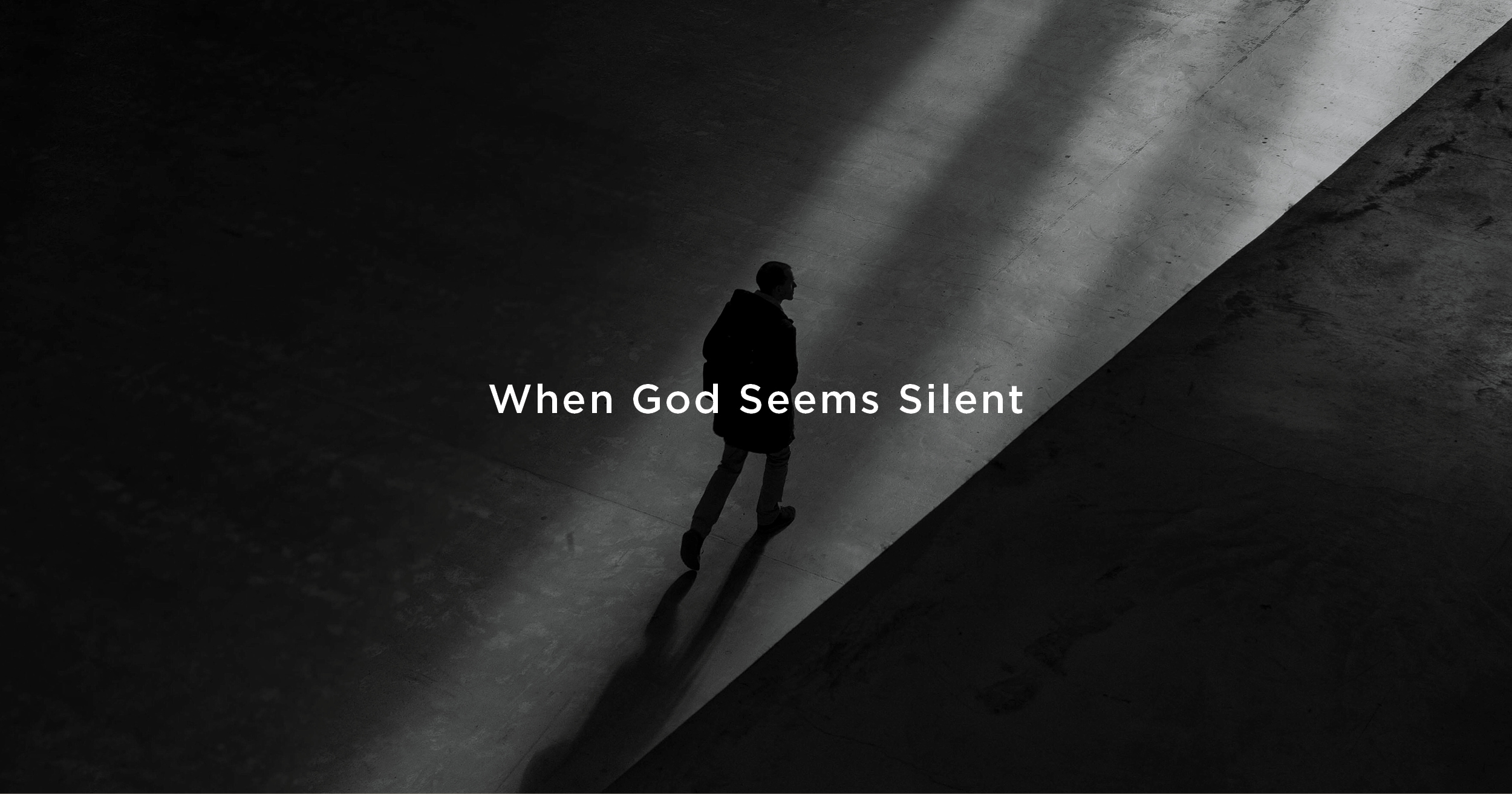
“Look among the nations, and see; wonder and be astounded. For I am doing a work in your days that you would not believe if told.” (Habakkuk 1:5)
Most of the times I have read Habakkuk, I have moved quickly past verse 5 to the rest of the book. But verse 5 actually contains wisdom for us about how to live through moments of God’s silence. It is, after all, the exhortation that God himself gives to a man who has been living with that experience for some time.
First, God tells Habakkuk to “look” and to “see.” Habakkuk and the nation he represented were in trouble, that is true. But apparently, his awareness of his problems had produced a spiritual myopia, because God’s first word to him was a command to get his eyes off himself and onto what God might be doing among the nations—outside of his immediate circumstances.
God’s silence is filled with purpose for us, even though it is not filled with words.
Second—and this is the reason Habakkuk is to “look”—God tells Habakkuk to “be astounded” (literally, dumbfounded) by what he will see. This suggests that Habakkuk was experiencing something that we all do when we suffer a season of God’s silence: our worship contracts.
And finally, God explains a bit about why Habakkuk was to look, see, and be amazed—God says that the kinds of things that he is bringing to pass are so unexpected that they are hardly to be believed, even though explained by God himself.
The rest of Habakkuk goes on to explain the details of this plan God was bringing about and the prophet’s response. But that doesn’t concern us at the moment. What does concern us is what we might learn from God’s response to Habakkuk's complaint about what I will call God's sovereign silence—and how we should respond to it when it happens to us.
So, what does God’s response to Habakkuk teach us about his sovereign silence—God’s choice not to answer the prayer of this prophet for a season of time? Let us first consider what this does not mean. As we’ve already observed, God’s silence does not mean that God does not see or is not there or cannot help. The nature of God’s ruling of the nations and of orchestrating the geopolitical events of that time more than demonstrates that the God of the Bible suffers neither from exhaustion nor distraction. Instead, God’s sovereign silence is just that—sovereign. In other words, God’s silence is filled with purpose for us, even though it is not filled with words.
God’s silence does not mean that God does not see or is not there or cannot help.
First, God’s silence toward Habakkuk for a season seems to suggest that when all we can see is evil, injustice, and brokenness, God sees more than we do, and his plan is still at work. Though in a season of sovereign silence this may be difficult to believe, it is also much more critical to believe. The spiritual myopia of Habakkuk is just as much a risk for us. So we should hear well the command to “look” and “see” beyond what is merely before our eyes or within our emotions. Seasons of silence are good times to remind ourselves of what was true for Habakkuk: that God is still bringing about his good purposes for the world even when, from our vantage point, things don’t look so good and no one (least of all God) seems to be explaining it all to us.
Yet, God’s silence suggests something more: that he is not merely choosing to be silent toward us to bring our attention to his sovereignty but to form in us the virtue of humility. When children are very young and their mother is out of sight, they will often cry for their mother to comfort them or scramble to find her. And we do not expect anything different because these are young children after all. But if an 18-year-old was still demonstrating the same behavior, we would rightly conclude that they were profoundly immature. They should be able to understand and embrace the fact that mom is still there, even though they cannot see her all of the time. This is, I believe, what is meant by Psalm 131:
O Lord, my heart is not lifted up;
my eyes are not raised too high;
I do not occupy myself with things
too great and too marvelous for me.
But I have calmed and quieted my soul,
like a weaned child with its mother;
like a weaned child is my soul within me.
O Israel, hope in the Lord
from this time forth and forevermore. (Psalm 131:1-3)
The psalmist is telling God that he has decided no longer to anxiously occupy his thoughts with all the “what-ifs” about God’s plans, his character, or his ways—he is no longer going to cry when he can’t see mom. Rather, he has learned to quiet his soul just like a baby that has finally been weaned. He is going to grow up a bit and learn to trust that God is there, even when the comfort of his voice is, for a season, not there.
This is an adapted extract from When God Seems Gone, by pastor Adam Mabry. Using the book of Habakkuk, as well as his own personal experience of deep suffering, Adam examines the art of lament—how to cry out to God in desperation from a place of faith and hope. Readers will learn that God is big enough and good enough to handle hard questions and that his sovereign silence is filled with purpose for their lives